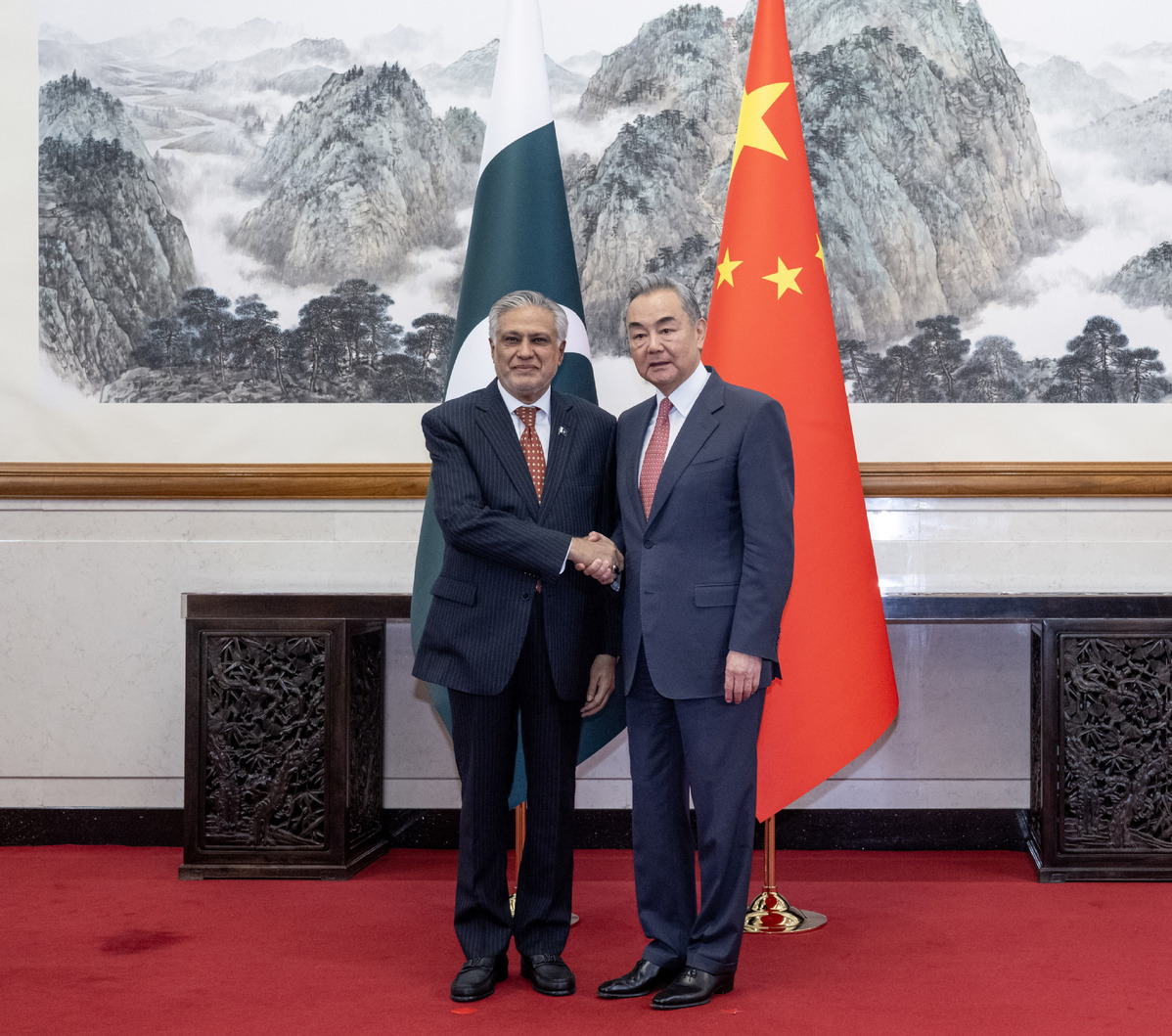Focus on amicable, secure neighborhood: China Daily editorial


Pakistani Deputy Prime Minister and Foreign Minister Mohammad Ishaq Dar's three-day visit to China, which started on Monday, apparently aims to reaffirm that his country's relations with China are ironclad amid the high tensions between Pakistan and India.
In his meeting with Foreign Minister Wang Yi and other Chinese officials on Tuesday, Dar thanked China for its firm support for Pakistan's sovereignty and territorial integrity, and vowed to further deepen the all-weather strategic partnership between China and Pakistan.
The Chinese side reiterated that it has always taken China-Pakistan relations as a diplomatic priority and is willing to deepen cooperation and promote the building of a closer China-Pakistan community with a shared future.
Despite this, those thinking Islamabad is trying to leverage its relations with Beijing to steer the situation in South Asia so that it develops in its favor are misreading the situation.
That Wang stressed China will, as always, firmly support Pakistan in safeguarding its sovereignty and territorial integrity in his meeting with Dar does not mean it has altered its objective and just stance.
As Wang said, China welcomes and supports Pakistan and India in properly handling their differences through dialogue, achieving a comprehensive and lasting ceasefire and seeking a fundamental resolving of their differences. This is in the fundamental and long-term interests of both sides, conducive to regional peace and stability, and also the general expectations of the international community.
Dar's visit goes far beyond bilateral economic scope, as strengthening regional security and anti-terrorism cooperation is high on the agenda, and the core mission of his visit is to carry on the momentum of bilateral development cooperation.
During Pakistani President Asif Ali Zardari's visit to China in February, Beijing expressed its readiness to work with Islamabad to upgrade the China-Pakistan Economic Corridor cooperation, and help Pakistan consolidate its development foundations and unleash its development potential.
So deepening pragmatic cooperation related to the China-Pakistan Economic Corridor is high on the agenda of Dar's visit. During his meeting with Wang, the two sides pledged to double down on their cooperation in the fields of industry, agriculture, energy and mining, human resources development, as well as counter-terrorism and security.
The development of China-Pakistan relations is to promote the common development of the two nations and bring tangible benefits to the two peoples. It does not target any third party, and will help fill in the development gap of the region, which is necessary to eliminate the soil for terrorism, the spark for the recent India-Pakistan conflict.
China adheres to the principle of good-neighborliness and friendship, supports a comprehensive ceasefire, and is willing to provide assistance in maintaining regional stability.
India and Pakistan are both important neighbors of China, neighbors that cannot move away from each other. In that sense, it is good to see that Pakistan and India have agreed to withdraw troop reinforcements deployed during their recent conflict back to their peacetime positions by the end of May.
But it should also be seen that the two sides still lack basic political mutual trust, and the prevalent jingoism in India is not conducive to easing the tensions.
China strongly urges both India and Pakistan to act in the interest of peace and stability, exercise calm and restraint, and take concrete actions to consolidate the ceasefire. They should create more favorable conditions for political settlement of their disputes through peaceful means and refrain from any action that could further escalate tensions.
Allowing the tensions to escalate between two nuclear countries in a region that is home to more than 2 billion people will only risk disaster for the whole world. Both countries should realize that terrorism is a common enemy of humanity, and regional chaos will benefit no country.


































